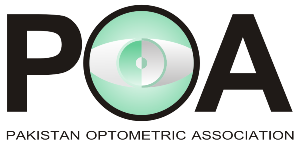Friday, January 29, 2010
Optometrist vs Ophthalmologist, Do You Know The Difference?
An Optometrist is a health care professional who is licensed to provide primary eye care services:
- to examine and diagnose eye diseases such as glaucoma, cataracts, and retinal diseases and, in certain states in the U.S., to treat them;
- to diagnose related systemic (bodywide) conditions such as hypertension and diabetes that may affect the eyes;
- to examine, diagnose and treat visual conditions such as nearsightedness, farsightedness, astigmatism and presbyopia; and
- to prescribe glasses, contact lenses, low vision rehabilitation and medications as well as perform minor surgical procedures such as the removal of foreign bodies.
An optometrist is a Doctor of Optometry, an O.D.. To become an optometrist, one must complete pre-professional undergraduate college education followed by 4 years of professional education in a college of optometry. Some optometrists also do a residency.
An Ophthalmologist is an eye M.D., a medical doctor who is specialized in eye and vision care. Ophthalmologists are trained to provide the full spectrum of eye care, from prescribing glasses and contact lenses to complex and delicate eye surgery. They may also be involved in eye research.
After 4 years of medical school and a year of internship, every ophthalmologist spends a minimum of 3 years of residency (hospital-based training) in ophthalmology. During residency, the eye M.D. receives special training in all aspects of eye care, including prevention, diagnosis and medical and surgical treatment of eye conditions and diseases. An ophthalmologist may spend an additional year or two in training in a subspecialty, that is, a specific area of eye care.
Thursday, January 14, 2010
Defination of Optometrist by WHO
Optometry is a health care profession that is autonomous, educated, and regulated (licensed/registered), and optometrists are the primary health care practitioners of the eye and visual system who provide comprehensive eye and vision care, which includes refraction and dispensing, detection/diagnosis and management of disease in the eye, and the rehabilitation of conditions of the visual system
Thursday, January 7, 2010
POA UPDATE
POSTED BY
Muhammad Rashid
Optometrist
Windows Live Hotmail: Your friends can get your Facebook updates, right from Hotmail®.
